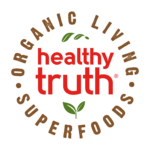A plant-based diet is much more than a list of which foods you’ll eat. For a lot of people, plant-based eating is a whole lifestyle focused on healthy living and being mindful of what we put in our bodies. After all, french fries, corn chips, and jello pudding can all be made with plant-based ingredients—but a health-conscious diet would limit these kinds of guilty pleasures.
To really feel the benefits of a plant-based diet, you’ve got to shoot for:
- Dishes built around vegetables, fruits, seeds, nuts, and whole grains
- Quality ingredients (organic, natural, and local are all a plus!)
- Minimal added sugars or refined, processed foods
- A healthy balance of nutrients, carbohydrates, proteins, and good fats
- No animal products
This approach gives a huge boost to both your body and your mind. And that’s what plant-focused eating is all about—getting the most out of life!
Live Longer, With Higher Quality of Life
A mountain of evidence has revealed that eating less meat (or giving it up entirely) can lower your risk for all sorts of health problems. The Harvard School of Public Health, for example, has shown that a fruit-and-veggie-heavy diet can lower your blood pressure (1). You’ll also be less at risk for:
- Heart disease
- Stroke
- Diabetes
- Obesity
- Many kinds of cancer (2)
And these are just a few of the life-extending benefits of a plant-based diet. Here’s some better news: anyone can do it! Almonds are the perfect example of a simple snack that promotes heart health and satisfies your midday munchies at the same time. There are plenty of tasty ways to enjoy what you eat while protecting your health.
It’s Easier to Lose Weight
Animal-based foods are higher overall in saturated fats and low-density lipoproteins (LDLs, or “bad cholesterol”) than most plants. A diet with veggies, nuts, and seeds in starring roles can give you healthy, lean proteins without adding inches to your waistline. Try adding protein through foods like beans, legumes, spirulina, and sprouted brown rice!
You’ll Stay “Regular”
Tons of folks struggle with digestion or constipation at some point in their lives, and might not realize that their diet could be the culprit. Plant-based diets are rich in fiber, so the more you chow down on healthy fruits and veggies, the better your stomach will feel!
It’s Good For Your Vision
Spinach, kale, carrots, kiwi, and grapes are all rich with nutrients like Vitamin A, lutein, and zeaxanthin that are great for your eyes. A diet packed with the right plants can shield off cataracts and even boost night vision.
Your Mind Ages More Gracefully
Plant-based diets are much higher in antioxidants and other lifesaving compounds. According to some research, these nutrients can slow Alzheimer’s disease and even reverse cognitive deficits (3). Nine studies of over 31,000 people found a 20% lower risk of developing dementia with a diet rich in fruits and vegetables (4).
It’s Good For Our Planet
Research and studies abound with evidence that plant-focused eating is better for the environment. Sustainable, plant-based lifestyles could reduce greenhouse gas emissions and land use by up to 70% or 80%, cut water use by up to 50%, and slow the effects of climate change (5). Animal agriculture is a significant drain on our natural resources, and a plant-based diet can make a genuine difference!
Any one of these benefits of a plant-based diet is worth the effort to make a change. Altogether, you can see why healthy eating habits have become a lifestyle of their own!
Sources:
1) U.S. News – The Best Foods for Lowering Your Blood Pressure
2) Heart.org – How does Plant-Forward (Plant-Based) Eating Benefit your Health?
4) Healthline – Whole-Foods, Plant-Based Diet: A Detailed Beginner’s Guide
5) The National Center for Biotechnology Information – The Impacts of Dietary Change on Greenhouse Gas Emissions, Land Use, Water Use, and Health: A Systematic Review
